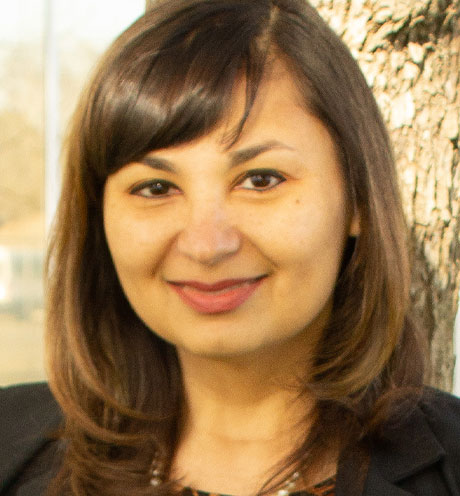
n the spring of 2019, Kern County’s Behavioral Health Department, known as Kern Behavioral Health and Recovery Services, was looking for more hands-on delivery of services to school-aged children that would help develop their social-emotional learning and enhance their resiliency. As the department started to look at enhancing services for at-risk and underrepresented youth, it saw an opportunity to provide services within the educational constructs in Kern County through the Mental Health Services Act, for Prevention and Early Intervention (PEI) services.
PEI services and programming promote wellness, foster health and prevent suffering that can result in untreated mental illness. PEI also requires that most services are provided to youth.
The MHSA requires that all services or programs that use its funding go through a robust stakeholder input process. In this case, the stakeholders were the general public. The county held a townhall stakeholder meeting in mid-2019 to gain support for the adoption of the Prepare U model and curriculum. The Prepare U curriculum is a 15-course experiential model that focuses on social-emotional learning and resiliency building for students. KernBHRS was looking for programming that would be hands-on and allow youth to dive deeper into the fundamental topics of behavioral health.
The Prepare U program is designed to build a circle of support within the classroom, focusing on discussions of personal experiences with behavioral health. The program takes on heavy topics, which, quite frankly, we have found youth are more willing to talk about than their elders. The course peaks midway through at the very frank discussion of suicide. The curriculum ends with an array of resources provided to students. The goal of the program is that youth, through this process, have been on a journey to build their toolkit for behavioral health resources and a sense of independence with personal thought and resilience to overcome challenges. Parents and caregivers receive a Prepare U Home Edition model, which allows them to follow the curriculum at home as their child completes it at school. This creates a full circle of support and understanding around the child.

After the general stakeholder meeting in mid-2019, KernBHRS’ MHSA team worked swiftly to reach out to Kern County school districts. KernBHRS turned to multiple focus groups in partnership with many of the school districts in Kern County to garner interest and have truthful discussions about implementing the program. One of the great constructs of this program is that it is designed for all students to complete. The curriculum is not targeted specifically for children who have already been identified as at-risk or high risk — this curriculum is designed to be implemented throughout the whole student body. This approach aids in reducing the stigma associated with mental illness and creates an environment that promotes resiliency among all. KernBHRS looks at this as an opportunity to have every student go through a Behavioral Health 101 design, much like youth used to do with home economics and sexual education. These are skillsets that every child entering adulthood should be learning. Additionally, the program is taught at an optimal time when children are transitioning from adolescence and exploring and discovering who they really are. Through the focus group process, the KernBHRS team selected two school districts in Kern County to pilot the program, which launched in the 2019–20 school year.
The pilot program began in January 2020 at Buena Vista Continuation and Taft Union high schools in Taft and A.M Thomas Middle School in Lost Hills. Taft and Lost Hills were both chosen due to self-disclosed trauma and loss that students reported they had experienced. Taft Union High School had an on-campus school shooting in January 2013, and the effects that this experience had on the student body as well as the staff still manifest today. Additionally, both areas of implementation are considered rural areas of Kern County with significant unmet needs and limited resources. Bringing the Prepare U curriculum to these areas was intended to uplift the student body in supporting their own developmental processes. When the curriculum started, each student was asked to complete a demographics survey and pre/post surveys to measure outcomes of the program. The data collected showed that the students participating had significant behavioral health needs on par with the national average.
Students watch videos, participate in class discussion and are provided with workbooks as they navigate through the 15-class model of Prepare U. The curriculum is flexible, allowing teachers to deliver it in a way that best fits their schedule and the needs of the school. Some teachers decided they wanted to do the class 15 days in a row, while others opted to do the curriculum twice a week until they were finished. An additional helpful fact about the curriculum is that anyone can implement it — it can be a homeroom educator, PE teacher or administrator. The curriculum is designed to be flexible, easy to deliver and self-navigating, with training provided prior to implementation. KernBHRS invited the creators of the curriculum to provide a hands-on two-day training for both school districts so they would be empowered to lead with confidence and have an in-depth understanding of the curriculum. Although this is not needed to implement the curriculum, it was an asset, as enthusiasm to teach it was high when the training finished.
As the school districts were nearing the end of the curriculum, the COVID-19 pandemic hit. This effected the outcome measurements, as not all schools finished the curriculum prior to the state-mandated stay-at-home orders. KernBHRS reached out to the school districts to support them and offered switching the platform solely to the Prepare U Home Edition; however, this was a challenge in these rural areas. As preparations start for the upcoming school year, KernBHRS will be reigniting the discussion with the piloted school districts and possibly open the door to additional schools to implement the curriculum. From the standpoint of KernBHRS, the cost of Prepare U is nominal, and the benefits are potentially enormous. KernBHRS believes that behavioral health topics, outreach and education should be a core concept and curriculum that every student can participate in. Prepare U gave Kern County this opportunity.